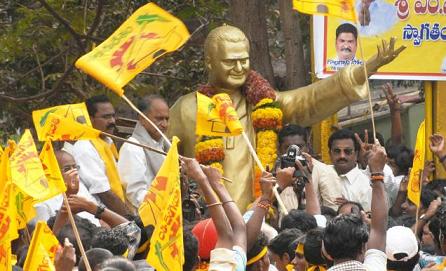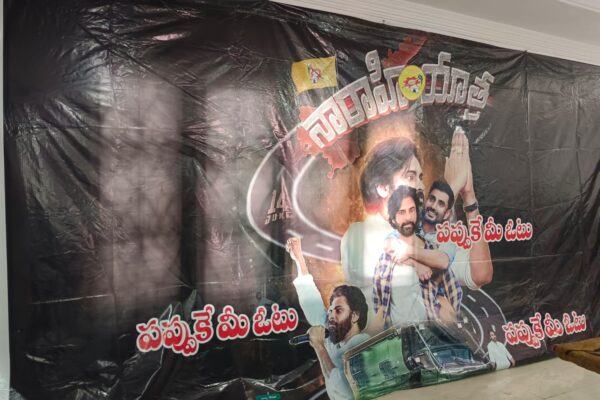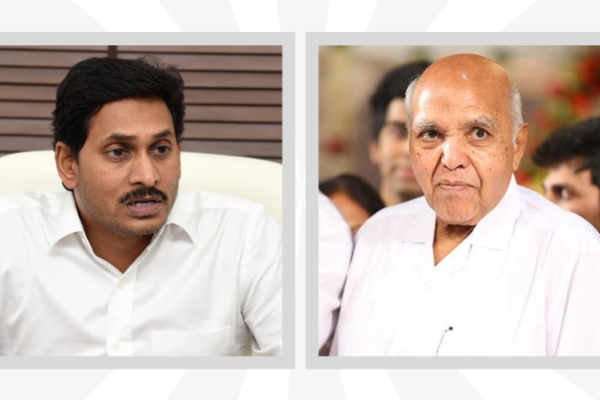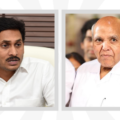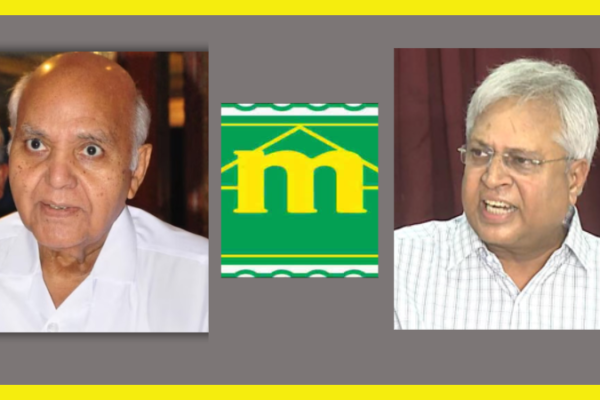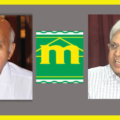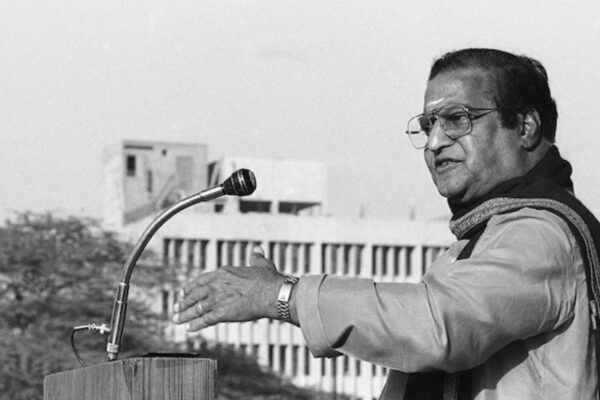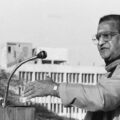It has been 30 years since a revolution surfaced on the Indian political arena. The revolution has a name and fame too. It was the legendary thespian of the Telugu tinsel town Nandamuri Taraka Rama Rao , undoubtedly the darling of masses, who announced the formation of a regional political party on this 29th day of March in 1982. It is three decades on and the party that claims to have been launched by him stands at political crossroads today.
The tenants have occupied the doghouse by evicting the owner almost half way through, precisely 16 years ago, and continue to remain there. By the time he died, NTR wasn’t even the primary member of the political formation that is masquerading as Telugu Desam Party (TDP), which he fathered and groomed.
Claims on the party, government, death of the legend, hankering for his legacy, media-backed political activity, Y2K advantage, surrogacy to bear the embryo of Telangana Rashtra Samithi, exit and rise of KCR, the total rout of TDP and now leading of political life like a vegetable depending solely on the geriatric leadership and the political brinkmanship of the party supremo virtually explains the condition of a sensational political formation that once bestowed the nation with a new direction.
NTR stormed into power with his extensive tour of the State soon after floating his regional political outfit. It was indeed a proverbial fight between David and Goliath in Andhra Pradesh in the elections held in December 1982.
NTR’s histrionics on the silver screen came on to the roads. People were mesmerized by his emotional political speeches. He bathed on the roadsides, shared his meal with the poor man in villages, washed his clothes himself, and breathed fire at the Congress.
His slogans of ‘Telugu self pride’, ‘society is temple and people are gods’, ‘Indira Congress, Quit Andhra Pradesh’, and the likes became political hymns among the young and the old alike in the State. His kinematic expressions turned a rage among people.
When he formed a 15-member Cabinet after inflicting a crushing defeat on the nearly-centurion political behemoth, the Congress, under the auspices of a worldly wise Indira Gandhi, surely it stunned the whole world.
Giving publicity to NTR’s tours and activity only added value to the commercial successes of a few media organizations. Surely, it is not the other way round as is being claimed. For, just analyse the situation vis-à-vis the circulation of a newspaper and the readership and literacy rate. Each copy of a newspaper with a circulation of 200,000 copies could have been read by a maximum of 10 people. The electorate was far higher in numbers. This is enough a reason to crush the argument under the jackboots of the learned lot in the State.
NTR ran politics in a novel method until he suffered the first jolt from his trusted lieutenant and Finance Minister Nadendla Bhaskar Rao, father of present Assembly Speaker Manohar, at the behest of Indira Gandhi in 1984. But the popular revolt caused a civil war-like situation and the frayed tempers of the people could be felt in the flames of burnt down business houses, ransacked residences of defected legislators, and the vandalized vehicles in support of their venerated versatile actor.
NTR proved resurgent. He was reinstated, but he had the Assembly abolished and brought the party back to power and asserted his position in Indian politics by March 1985.
His party’s humiliating defeat in the simultaneous elections to the Lok Sabha and the Assembly in 1989 kept him away from the top job of Prime Minister, which otherwise would have adorned him with near unanimity across all political parties of the country.
NTR earned an iconoclastic position in his opposition to the Congress. He never hobnobbed with Congressmen as anti-Congressism was the basic tenet on which the TDP was founded and built.
His marriage with his biographer Lakshmi Parvathi, opposition from his family, which in itself is of the size of a mini-Assembly, popular acceptance to the pair’s political tour and the return of the TDP with a landslide victory margin in the State are all history.
Telugu Ganga was the first major irrigation project conceived and implemented after a protracted gap of more than two decades. This is an achievement of NTR. His style of governance won accolades from all over. He was the father of devolution of power through mandal system. His idea of ‘nayaya panchayats’ is now being talked about by legal luminaries in the country.
Equal rights to female children in property and wealth is the contribution of NTR to India. He etched a regal position for himself in the hearts of people of his times.
However, as the time passed by, people are turning blind to the past. The backstabbing of NTR by his son-in-law N Chandrababu Naidu, how the latter usurped everything, including power and pelf, from the legend, how miserable the patriarch felt and how much was he stressed up before he breathed his last actually needs a long and emphatic explanation to younger generations and the mediocre lot who only trust what the wily fox media writes or airs.
The TDP under N Chandrababu Naidu wasn’t even a poor shadow of what it was under NTR. It was publicity blitzkrieg that kept the pot boiling for the TDP in the last 16 years. Almost all TRS leaders are the erstwhile TDP cadres and this speaks volumes of how efficient a leader Chandrababu Naidu is.
The simultaneous elections to the Lok Sabha and the Assembly in 1999 in the backdrop of the Kargil War and the defeat of motion of trust by Atal Behatri Vajpayee just by one vote in the Parliament brought the TDP back to power in the State.
A detailed analysis of results would clearly impale the fact that the TDP would have been routed lock, stock and barrel had it not aligned with the BJP before the elections.
This was a very clever move by Chandrababu Naidu. He needs a pat on his back for this. He also rightly picked up the IT gauntlet and began wearing it on his shoulder. It was incidental that Hyderabad and Andhra Pradesh had a myriad of natural advantages to stand up to the spurring demand in the sector that contributed to the country’s new economy. However, Naidu’s contribution to the growth of the sector in many ways cannot be discounted. He also had the dexterity to choose right people for right things.
Naidu’s cleverness in insinuating the national leaders to toe his line catapulted him into the national political arena. This was undoubtedly a thing of pride for the State. But he could never ward off the smudge on him for hobnobbing with the Congress to get the regime of United Front, a political decoction, remain in power for almost two and a half years.
But the subsequent events paled his political profligacy and projected his parsimony. His heavy dependence on bureaucrats and ill-treatment he meted out to his own colleagues in the political system made him pay such a heavy price that he could never lead his party back to power.
The party, which derived the Y2K advantage in making people credit Naidu with being responsible for the spurt in IT growth in the State, could not advance itself beyond the stature of what a floppy disc enjoys in the field of IT today.
With numerous political drubbings, the TDP recorded more losses than gains in the last 30 years and doesn’t seem confident to face an electoral challenge with aging leaders and exhausted ideas. The lunar eclipse continues with roughnecks in the party and the patriarch’s family raising the banner of revolt. The leader is now talking that the party is suffering from paucity of funds as it was out of power for eight years now. What does it mean? Does he mean t o say his party lost the golden opportunity to gobble up all the funds and remain rich? What a shame, Mr. Naidu?
Sadly, youths are no longer attracted towards it, thanks to the over-blowing of TDP’s trumpet by a large section media for very obvious reasons.
The equation with media has done more harm than good for the party which the people only hope to become responsible in future and hold the torch of the Telugu pride high in the years to come without the necessary muscle or fuel.

